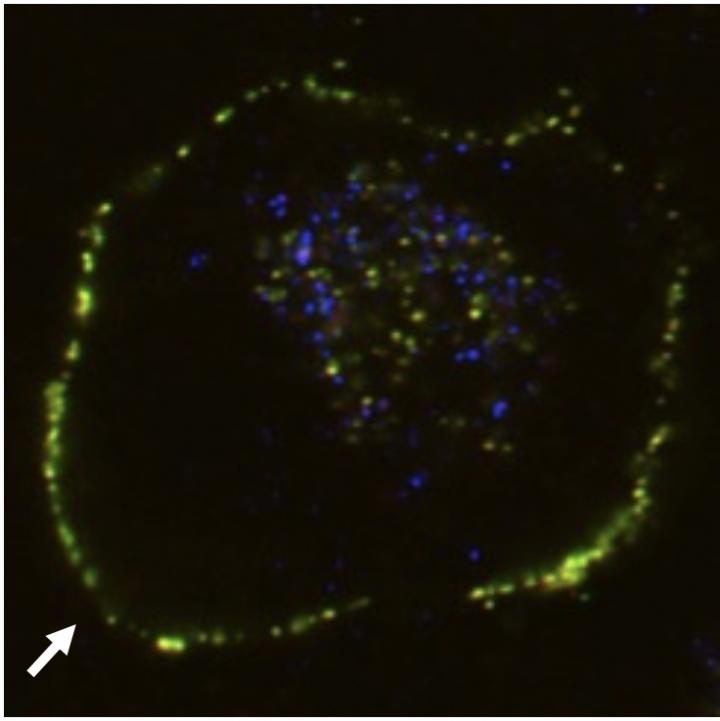
Credit: Eisuke Itakura
The accumulation of aberrant proteins in the body will cause various neurodegenerative diseases. Amyloid β, one of these aberrant proteins, is a known risk factor for Alzheimer’s disease. Eisuke Itakura, an assistant professor at Chiba University, says, “Human cells have functions for maintaining homeostasis. Scientists are now actively studying the typical intracellular protein degradation systems by autophagy and proteasome, but our knowledge of how cells act on aberrant external substances is still limited.”
The research team led by Itakura gained new knowledge of the functions that human cells have for maintaining homeostasis through experiments in petri dishes. The team discovered a system in which cells could capture, degrade and remove aberrant extracellular proteins. This study will be published February 18th in the Journal of Cell Biology.
In these experiments, the team focused on Clusterin, an extracellular molecular chaperone. By developing an original proprietary cell internalization assay in which cells fluoresce when extracellular Clusterin is taken up, they established a new method for visually observing the state of proteolysis in the body (Fig 1).
Itakura’s team found that extracellular Clusterin selectively binds to aberrant proteins and forms a complex. They then observed how cells take up this complex using the fluorescence assay and genome-wide CRISPR screening. The team identified that cells lacking a gene related to the heparan sulfate receptor on the cell surface did not take up the aberrant protein-Clusterin complex. They also demonstrated that cells could take up Clusterin complex with amyloid β via the heparan sulfate receptor and that the complex was degraded in organelle lysosomes.
“Clusterin is a type of molecular chaperone that binds to immature proteins to protect them. If we can artificially develop Clusterin that easily binds to amyloid β and inject it into the body, it could be a treatment for Alzheimer’s disease,” says Itakura.
The heparan sulfate receptor was previously known to be a viral and growth factor receptor. This is the first time that scientists have demonstrated it to be an abnormal protein receptor. The research group has named this homeostasis system “the chaperone- and receptor-mediated extracellular protein degradation (CRED) pathway” and now they are planning to apply it in disease treatment through further research.
###
Reference
Eisuke Itakura, Momoka Chiba, Takeshi Murata, Akira Matsuura, “Heparan sulfate is a clearance receptor for aberrant extracellular proteins”, Journal of cell biology, Vol. 219 Issue 3, 2020, doi: https:/
Contact:
Eisuke Itakura Ph.D.
Assistant Professor
Division of Molecular and Cellular Biology, Chiba University
Phone: +81-(0)43-290-2778
e-mail: [email protected]
Media Contact:
Saori Tanaka
Research Administrator for Communications
Institute for Global Prominent Research, Chiba University
[email protected]
Media Contact
Saori Tanaka
[email protected]
81-043-290-3022
Related Journal Article
http://dx.




